Don't wanna be here? Send us removal request.
Photo

O'Mahony Letters on the Balkans in 1914
First Letter: The Bulgarian and Serbian Treaty Before the War of 1912 November 2nd, 1914
Great Britain’s Declaration of War
Great Britain declared war on Germany because Germany broke a treaty, and by doing so, Britain gained eternal honor. In 1913, Bulgaria was forced to go to war with Serbia because Serbia broke a treaty. So, are treaties made by Great Powers more important than treaties made by smaller countries?
The Problem with Small Nations and Treaties
Since the Treaty of Berlin, which was one of the worst decisions in modern European history, the freedom of small nations has been ignored, and promises made to them have been broken. Military power and territorial greed have shaped the decisions of Europe’s leaders Sightseeing Turkey.
When Germany took control of Alsace and Lorraine, it made war between France and Germany inevitable. Similarly, if the Treaty of San Stefano had been respected, Bulgaria would have grown stronger and acted as a defense against aggression from more powerful neighbors.
The Treaty of Berlin’s Impact
The Treaty of Berlin placed the mainly Bulgarian population of Macedonia back under Turkish control. It also split the Bulgarian race into two smaller states. This decision put the Balkans at the mercy of powerful neighboring countries, and it set the stage for war between Austria and Russia, a war that was only a matter of time.
Britain’s Responsibility
Great Britain, which played a leading role in the Treaty of Berlin, bears a heavy responsibility for the division of the Bulgarian people. This responsibility still affects Britain more than any other European country today.
0 notes
Photo

The Growth of the Goriyani Resistance Movement
By the end of 1947, peasants made up 47% of those involved in the resistance movement in Bulgaria. This number grew significantly, reaching 70% between 1950 and 1951. After the opposition parties were eliminated, the communist government pushed forward with mass collectivization of land and the nationalization of private urban property. This effort followed the Soviet model closely and contributed to the spread of the Goriyani movement, an armed resistance group that fought against the communist regime.
The Spread of the Goriyani Movement
As the government continued to implement its policies, the Goriyani movement spread across the country. By the 1950s, almost every mountainous region in Bulgaria had active armed Goriyani detachments, supported by large numbers of local people. These resistance groups fought against the oppressive regime and its attempts to control rural life Private Bosphorus Tours.
Government’s Response Internal Military Battalions
The communist regime’s desperate efforts to eliminate the Goriyani resistance led to the creation of internal military battalions. By the end of 1948, the first battalions were formed. By October 1950, the number had increased to 10 battalions. These battalions were stationed in key cities, including Sofia, Plovdiv, Bourgas, Varna, Stara Zagora, Yambol, Blagoevgrad, and Belogradchik.
The Politburo of the Central Committee of the Bulgarian Communist Party issued a decision to reorganize these internal military troops into a division. The number of battalions increased as the need for more troops grew. The mission of these military forces was clear: they were to fight and destroy the Goriyani detachments, and crush the entire resistance movement in Bulgaria.
The Role of the Military and State Security
The internal military forces were trained to operate like the Soviet Union’s internal forces. They were expected to be loyal to the Bulgarian Communist Party to the death. Along with the Bulgarian State Security forces, these battalions were tasked with eliminating the Goriyani resistance. Their goal was to wipe out the resistance and restore the government’s control over the country.
The Goriyani movement was an important chapter in Bulgaria’s resistance to the communist regime. Despite the government’s efforts to crush the movement, it continued to grow and spread, especially in the countryside. The creation of internal military battalions and the deployment of State Security forces demonstrated the regime’s determination to eliminate any form of opposition, including the armed resistance groups that were fighting for freedom.
0 notes
Photo

Differences Between Communist and Social-Democratic Views on Women's Rights
The main difference between the communist and social-democratic views on women’s rights was not about the end goal, which was to liberate women from both material and moral authority and to create better living conditions for them. Both sides wanted the same ultimate goal, but they had different ideas on how to achieve it.
Different Methods of Achieving the Goal
Julia Sultanova, a key figure, explained the split between the two groups in the newspaper Blagodenstvie (Prosperity). She wrote that the communist women’s union believed in the idea of destroying the existing system and building a new life from its ruins. In contrast, the social-democratic women’s organizations wanted to transform society consciously by improving the current system and sharing its benefits with everyone Bulgaria Holidays.
Social-Democratic Women’s Union in 1922
In 1922, the Women’s Social-Democratic Union had 26 local groups and about 1,000 members from various backgrounds. Half of the members were housewives, a quarter were workers, and the rest were teachers, employees, craftswomen, saleswomen, and some doctors and pharmacists. One of the main goals of this union was to oppose both the communist women’s union and the bourgeois women’s union.
Advocating for Women’s Rights
The union’s newspapers, Blagodenstvie and later Nedovolnata (Unsatisfied), supported women’s civic and political rights. They believed that achieving these rights was crucial for the larger social-democratic goal of human liberation and global prosperity. They also insisted on equal pay for equal work, better health and hygiene measures, government support for the unemployed and poor, and good education and cultural facilities for everyone in Bulgaria.
The social-democrats were against some parts of the Civil Code and wanted to protect children and abolish prostitution.
Similar Goals to the “Bourgeois” Women’s Union
Although the social-democratic women’s group tried to separate themselves from the “separatist feminist organization”, it was clear that their goals and priorities were quite similar to those of the “bourgeois” Bulgarian Women’s Union.
0 notes
Photo

Differences Between Communist and Social-Democratic Views on Women's Rights
The main difference between the communist and social-democratic views on women’s rights was not about the end goal, which was to liberate women from both material and moral authority and to create better living conditions for them. Both sides wanted the same ultimate goal, but they had different ideas on how to achieve it.
Different Methods of Achieving the Goal
Julia Sultanova, a key figure, explained the split between the two groups in the newspaper Blagodenstvie (Prosperity). She wrote that the communist women’s union believed in the idea of destroying the existing system and building a new life from its ruins. In contrast, the social-democratic women’s organizations wanted to transform society consciously by improving the current system and sharing its benefits with everyone Bulgaria Holidays.
Social-Democratic Women’s Union in 1922
In 1922, the Women’s Social-Democratic Union had 26 local groups and about 1,000 members from various backgrounds. Half of the members were housewives, a quarter were workers, and the rest were teachers, employees, craftswomen, saleswomen, and some doctors and pharmacists. One of the main goals of this union was to oppose both the communist women’s union and the bourgeois women’s union.
Advocating for Women’s Rights
The union’s newspapers, Blagodenstvie and later Nedovolnata (Unsatisfied), supported women’s civic and political rights. They believed that achieving these rights was crucial for the larger social-democratic goal of human liberation and global prosperity. They also insisted on equal pay for equal work, better health and hygiene measures, government support for the unemployed and poor, and good education and cultural facilities for everyone in Bulgaria.
The social-democrats were against some parts of the Civil Code and wanted to protect children and abolish prostitution.
Similar Goals to the “Bourgeois” Women’s Union
Although the social-democratic women’s group tried to separate themselves from the “separatist feminist organization”, it was clear that their goals and priorities were quite similar to those of the “bourgeois” Bulgarian Women’s Union.
0 notes
Photo

The British Consulate in a Small Turkish Town
In the far distance, he imagines himself becoming a full Consul, earning £800 a year, or even rising to the position of Consul-General with £1,000. But right now, he is Acting Vice-Consul in the British Levant Consular Service, earning £400 a year.
The Town and Its Lack of British Interests
It’s unlikely you’ve heard of the small, rundown Turkish town where he represents British interests. In fact, there are no British interests here. There are no British people living in the town, and any British trade has been replaced by active Austrians and Germans. Still, he writes long reports to the Foreign Office, some of which are quoted in Blue Books that no one reads or are stored away in the vaults of Whitehall to gather dust. Despite this, he remains a cheerful young man. His greeting might be formally English, but his handshake is firm. Later, he says a visitor is a rare and welcome event Socialist Museum.
The Vice-Consulate’s Poor Conditions
The British Vice-Consulate in this remote Turkish town is far from the grandeur of the British Empire. The British taxpayer often complains about rising costs, and the officials in Whitehall, who manage the funds, are hard-hearted when it comes to consular requests. A small amount called “office allowance” is given to cover the rent and the salary of the kavass (a messenger), but the main costs are covered by the Vice-Consul himself. So, after paying his rent, which could be anywhere from £40 to £90 a year, furnishing his house, buying two horses, hiring a cook and a servant, paying the kavass’s wages, and feeding everyone, there isn’t much left from his salary.
0 notes
Photo
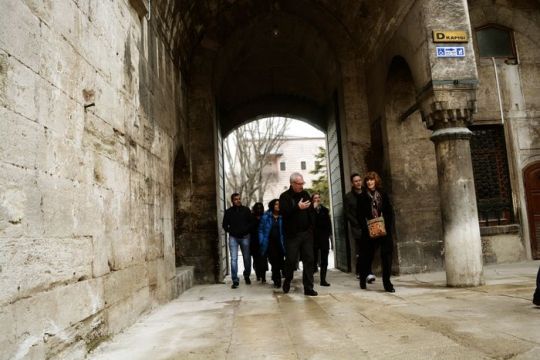
The Uncertain Path
One time, we were traveling along a narrow path next to a deep crevice. The path was soft and unstable because of loose rocks that had slid down from the mountain top. I was leading the horse, letting the reins hang loosely, as I trusted the horse to find its way better than I could guide it. I turned my face to the rocky wall because looking into the deep drop beside me made me feel very sick. Suddenly, a shepherd’s dog appeared and started barking loudly. The horse stopped in its tracks. If it had gotten scared and reared up, I might not have been here to tell the story. If I had urged the horse forward, it could have led to a terrible accident.
My Turkish guide, who was at the back of the group and on safer ground, quickly dismounted, climbed into the rocks, and used stones to chase the dog away. Then, we continued our journey. In just a few moments, we were back on safer ground. Those two minutes were some of the most intense of my life. My guide looked pale, and I probably didn’t look too good myself if I had looked in a mirror Istanbul Daily Tour.
Ancient Roads of Albania
In other places, the road was through a narrow gap just wide enough for the horses to fit. The walls of the gap rose steeply on either side, making the path feel even tighter. Sometimes, we came across old cobbled sections of the road. These were parts of ancient Roman roads that were over two thousand years old. All across Albania, we found pieces of these Roman roads. Sometimes we would find them suddenly, and just as quickly, they would disappear. Other times, they would lead us to the edge of a cliff, showing that the land had changed since they were built.
Although the modern road we were traveling on often differed from the old Roman roads, we could still see parts of the ancient stone path winding up the hillside, like a grey ribbon across the mountains. Even though the route was difficult and dangerous, it was the main highway across Albania, connecting Macedonia to Durazzo on the coast. This path had once been traveled by a mighty army long ago, and it had seen over twenty centuries of history.
0 notes
Photo

The Quiet Relics of Bulgaria's Past
The Church of the Forty Martyrs
Like many places, Bulgaria has quiet reminders of its noble past in the form of old churches. Walking down a rocky hillside, I arrived at the Church of the Forty Martyrs. It has a low roof, a dim, vault-like interior, but it is very strong. This church was built by King John Osen in 1330. In 1389, the Turks turned it into a mosque, and Christians couldn’t worship there again until 1877. Only part of the original building remains. Some of the granite pillars are from different periods: one came from a Roman temple, and another is clearly Greek. The Christians used pieces from earlier buildings. I looked through books of prayers written in ancient Slavic, with pages that were thin, brown, and crumbling in my hands.
The Metropolitan Church
I continued to a nearby church, the Metropolitan Church, which is now mostly forgotten, holding only one service a year. The old woman who took care of the church lost the key, but she suggested breaking the lock. After waiting for nearly an hour and smoking in the shade, the key was found. Inside, the church was dark, and the frescoes of saints had strange, exaggerated faces. The pillars were made of black marble, probably taken from a Greek temple. In a small room, I found old manuscripts hidden behind a crack in the wall—these could be treasures for someone who studies history. The monks’ seats were covered in dust and cobwebs. There were many ikons hanging in the dim light, and large candelabras hung from the ceiling Ancient Bulgaria Tour.
The church felt eerie, silent, and forgotten by most. But I couldn’t help wondering if the spirits of those who once worshipped here, like children and old men, might still visit. For an hour, I had the church to myself. I sat in one of the monk’s seats, and sunlight shone down from a crack in the roof, lighting up the Virgin’s face. It was a peaceful, thoughtful hour.
The Monastery of the Transfiguration
A Bright and Colorful Place
The sun was high in the sky, and the road was dusty as we raced towards the Monastery of the Transfiguration. The path twisted and turned, climbing higher and higher. We left the main road and walked through a cool area filled with tall trees. The quiet was broken by the sound of water dripping. After a while, we arrived at the monastery. It wasn’t like the old, crumbling buildings I had seen before. This monastery was bright and colorful. The grass was a rich green, and the sky was a deep blue. The white walls were covered in bright, colorful pictures, and the roof tiles had a warm, reddish color. Vines grew everywhere, adding to the lively, beautiful atmosphere.
0 notes
Photo
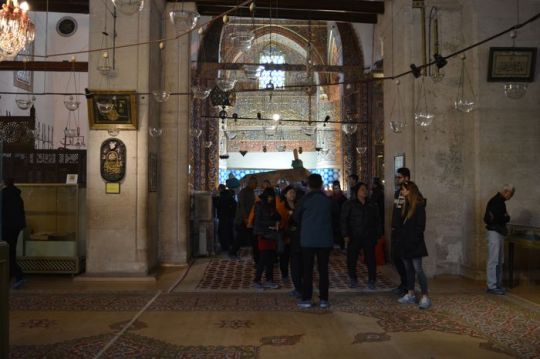
Rising Dissent in Bulgaria: 1981-1982
Concerns Over Polish Events
On 14 October 1981, Bulgarian leader Todor Zhivkov submitted a memorandum to the Politburo, expressing his worries that the unrest happening in Poland could spread to Bulgaria. The State Security Department 2 began to notice an increase in anonymously circulated leaflets and gatherings of young people in private homes who were discussing the events in Poland. A group of these young people planned to create a document called “Declaration-80” to be circulated outside Bulgaria. The authorities classified this effort as a threat to the “rule of law.”
State Security Operations
In response to growing dissent, the State Security launched a major surveillance operation named “Dissidents” targeting creative artists in Sofia, Burgas, Varna, Stara Zagora, Yambol, and other cities. Authorities arrested many individuals on charges related to dissident activities, and some were even sent to psychiatric clinics for evaluation. In 1982, about 45% of the 312 authors of anti-regime leaflets identified by the State Security were young people. During the same period, the State Security recorded 141 incidents reflecting anti-Soviet sentiments among the population Rose Festival Tour.
Increase in Youth Activism
The influence of events in Poland sparked a rise in informal youth groups across Bulgaria. In 1982, there were 64 such groups with a total of 295 participants, compared to only 18 groups with 86 participants in 1980. This significant increase indicates a growing willingness among young people to engage in discussions about political issues and express their dissatisfaction with the regime.
Open Letter to the Vienna Conference
In the autumn of 1986, several former political prisoners penned “An Open Letter of Appeal,” which they sent to the Vienna Conference. This conference was focused on reviewing the implementation of the Helsinki Agreement concerning human rights. Their letter called on esteemed representatives from European countries, the USA, and Canada to ensure that the conference did not conclude without fully guaranteeing the fundamental human rights of all European citizens.
The Message of the Open Letter
The letter stated:
“The Vienna Conference should not conclude its work until the most fundamental human rights of all European peoples are fully guaranteed. Until the day comes when each and every European citizen can freely and without fear of persecution express his/her thoughts, opinions, and convictions in oral or written form.”
The events of 1981-1982 in Bulgaria marked a significant period of rising dissent against the communist regime. As young people became more politically active and began organizing, the government responded with surveillance and repression. The call for human rights, highlighted in the Open Letter, reflected a growing determination among citizens to demand freedom of expression and protection from persecution. These developments set the stage for future movements that would challenge the regime and ultimately contribute to the fall of communism in Eastern Europe.
0 notes
Photo
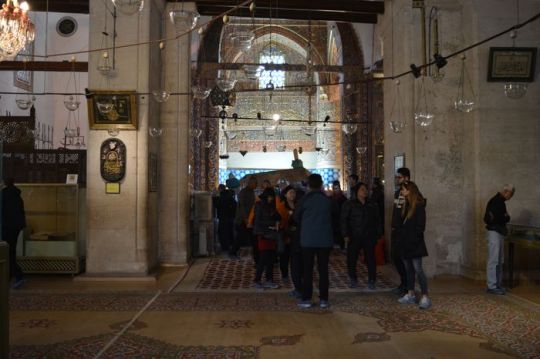
Rising Dissent in Bulgaria: 1981-1982
Concerns Over Polish Events
On 14 October 1981, Bulgarian leader Todor Zhivkov submitted a memorandum to the Politburo, expressing his worries that the unrest happening in Poland could spread to Bulgaria. The State Security Department 2 began to notice an increase in anonymously circulated leaflets and gatherings of young people in private homes who were discussing the events in Poland. A group of these young people planned to create a document called “Declaration-80” to be circulated outside Bulgaria. The authorities classified this effort as a threat to the “rule of law.”
State Security Operations
In response to growing dissent, the State Security launched a major surveillance operation named “Dissidents” targeting creative artists in Sofia, Burgas, Varna, Stara Zagora, Yambol, and other cities. Authorities arrested many individuals on charges related to dissident activities, and some were even sent to psychiatric clinics for evaluation. In 1982, about 45% of the 312 authors of anti-regime leaflets identified by the State Security were young people. During the same period, the State Security recorded 141 incidents reflecting anti-Soviet sentiments among the population Rose Festival Tour.
Increase in Youth Activism
The influence of events in Poland sparked a rise in informal youth groups across Bulgaria. In 1982, there were 64 such groups with a total of 295 participants, compared to only 18 groups with 86 participants in 1980. This significant increase indicates a growing willingness among young people to engage in discussions about political issues and express their dissatisfaction with the regime.
Open Letter to the Vienna Conference
In the autumn of 1986, several former political prisoners penned “An Open Letter of Appeal,” which they sent to the Vienna Conference. This conference was focused on reviewing the implementation of the Helsinki Agreement concerning human rights. Their letter called on esteemed representatives from European countries, the USA, and Canada to ensure that the conference did not conclude without fully guaranteeing the fundamental human rights of all European citizens.
The Message of the Open Letter
The letter stated:
“The Vienna Conference should not conclude its work until the most fundamental human rights of all European peoples are fully guaranteed. Until the day comes when each and every European citizen can freely and without fear of persecution express his/her thoughts, opinions, and convictions in oral or written form.”
The events of 1981-1982 in Bulgaria marked a significant period of rising dissent against the communist regime. As young people became more politically active and began organizing, the government responded with surveillance and repression. The call for human rights, highlighted in the Open Letter, reflected a growing determination among citizens to demand freedom of expression and protection from persecution. These developments set the stage for future movements that would challenge the regime and ultimately contribute to the fall of communism in Eastern Europe.
0 notes
Photo
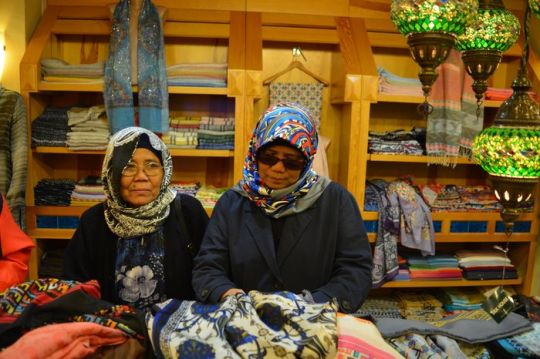
Secret Nationalization Process in Bulgaria
The Start of Nationalization
Preparations for the nationalization of businesses in Bulgaria were conducted in complete secrecy. On December 22, 1947, even before the new Nationalization Bill was officially passed, the communists began expropriating businesses. This process was made deliberately simple: business owners were instructed to hand over the keys to their offices and safes to representatives of the Communist Party who suddenly appeared at their doorsteps.
The Expropriation Process
Once the keys were handed over, the owner had to sign a statement declaring that they were submitting their business to the “people’s government.” After this, they were allowed to leave, often just taking their coat. Meanwhile, factory loudspeakers announced that the government had decided to expropriate that particular business. This sudden and harsh action removed owners from their positions in industrial, banking, and trade enterprises.
The repercussions of this process were severe. Not only were the owners stripped of their working capital and bank deposits, but they also lost most of their personal property, including houses, jewelry, cars, and other belongings Istanbul Tour Guides.
Nationalization of the Banking Sector
On December 25, 1947, a Bill was passed that imposed a state monopoly over banking. As a result, 31 Bulgarian and foreign banks were nationalized. This move eliminated any remaining aspects of a market economy in Bulgaria. Instead, a new bureaucratic economy took its place, leaving no room for entrepreneurship. Management of the enterprises was handed over to party activists, who often lacked the necessary skills to run businesses effectively.
The End of Private Enterprise
By this time, not a single private enterprise was left in Bulgaria. There were no privately owned small craft shops or any other types of shops remaining. The sweeping nature of the nationalization marked a significant shift in the country’s economic landscape, effectively ending the era of private ownership.
Impact on Housing and Citizens
The campaign of expropriation extended beyond businesses to include the homes of certain citizens. During 1948, housing committees set up by the municipal councils began relocating owners of urban properties. They would often house Communist Party functionaries and loyal employees in the flats or houses of those labeled as “enemies of the people.” This included relatives of individuals who had been sent to labor camps, executed, or interned.
The Urban House Property Bill
The Bill for Urban House Property provided for the complete or partial expropriation of homes, flats, villas, and offices belonging to well-off citizens. This further exemplified the regime’s efforts to consolidate power and eliminate any remnants of private ownership in society.
The nationalization process in Bulgaria was marked by secrecy, force, and the complete eradication of private ownership. The impact on individuals and businesses was devastating, leading to a bureaucratic economy that stifled entrepreneurship and innovation. The government’s actions fundamentally transformed Bulgarian society and its economy, creating lasting effects that would shape the nation for years to come.
0 notes
Photo
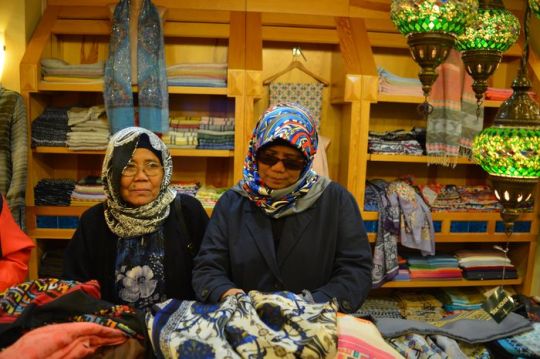
Secret Nationalization Process in Bulgaria
The Start of Nationalization
Preparations for the nationalization of businesses in Bulgaria were conducted in complete secrecy. On December 22, 1947, even before the new Nationalization Bill was officially passed, the communists began expropriating businesses. This process was made deliberately simple: business owners were instructed to hand over the keys to their offices and safes to representatives of the Communist Party who suddenly appeared at their doorsteps.
The Expropriation Process
Once the keys were handed over, the owner had to sign a statement declaring that they were submitting their business to the “people’s government.” After this, they were allowed to leave, often just taking their coat. Meanwhile, factory loudspeakers announced that the government had decided to expropriate that particular business. This sudden and harsh action removed owners from their positions in industrial, banking, and trade enterprises.
The repercussions of this process were severe. Not only were the owners stripped of their working capital and bank deposits, but they also lost most of their personal property, including houses, jewelry, cars, and other belongings Istanbul Tour Guides.
Nationalization of the Banking Sector
On December 25, 1947, a Bill was passed that imposed a state monopoly over banking. As a result, 31 Bulgarian and foreign banks were nationalized. This move eliminated any remaining aspects of a market economy in Bulgaria. Instead, a new bureaucratic economy took its place, leaving no room for entrepreneurship. Management of the enterprises was handed over to party activists, who often lacked the necessary skills to run businesses effectively.
The End of Private Enterprise
By this time, not a single private enterprise was left in Bulgaria. There were no privately owned small craft shops or any other types of shops remaining. The sweeping nature of the nationalization marked a significant shift in the country’s economic landscape, effectively ending the era of private ownership.
Impact on Housing and Citizens
The campaign of expropriation extended beyond businesses to include the homes of certain citizens. During 1948, housing committees set up by the municipal councils began relocating owners of urban properties. They would often house Communist Party functionaries and loyal employees in the flats or houses of those labeled as “enemies of the people.” This included relatives of individuals who had been sent to labor camps, executed, or interned.
The Urban House Property Bill
The Bill for Urban House Property provided for the complete or partial expropriation of homes, flats, villas, and offices belonging to well-off citizens. This further exemplified the regime’s efforts to consolidate power and eliminate any remnants of private ownership in society.
The nationalization process in Bulgaria was marked by secrecy, force, and the complete eradication of private ownership. The impact on individuals and businesses was devastating, leading to a bureaucratic economy that stifled entrepreneurship and innovation. The government’s actions fundamentally transformed Bulgarian society and its economy, creating lasting effects that would shape the nation for years to come.
0 notes
Photo
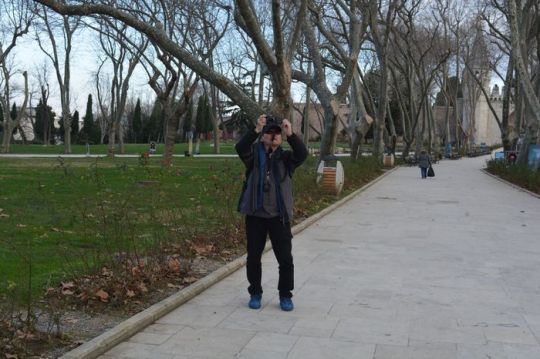
The Cycle of Violence Continues
Concealed Conflict
Despite efforts to downplay the ongoing violence between Christians in Macedonia, the truth is stark and brutal. Rival factions fear alienating Western European sympathy and prefer to keep their reprisals hidden from the outside world. It’s only in hushed conversations that the grim reality emerges.
A Disturbing Revelation
During a conversation with a Bulgarian leader in Sofia, a chilling revelation surfaced: the intention to transform every village in Macedonia into a hub of revolution. Any individuals, whether Greek or Bulgarian, who oppose this agenda are deemed obstacles to Macedonian independence and must be dealt with accordingly. The time for debate has passed; dissenters will be eliminated to ensure the country’s unified uprising against the Turks Private Tours Balkan.
Risks and Sacrifices
Concerns about the formidable challenge posed by trained Turkish soldiers were raised. The leader acknowledged the risk but emphasized a disturbing strategy: provoking the Turks into launching a massive massacre. This, they believe, will compel Europe to intervene and liberate Macedonia from Turkish rule.
A Calculated Gambit
Despite skepticism about the efficacy of reform movements or financial oversight boards, the leader sees no alternative to stirring Europe into action. They assert that only a significant Christian massacre will prompt Europe to intervene decisively and wrest control of Macedonia from Turkey.
The harrowing conversation underscores the grim reality facing Macedonia—a cycle of violence fueled by deep-seated animosities and political agendas. The prospect of a “big massacre” is viewed not as a tragedy to be prevented but as a calculated gamble to achieve liberation. In this volatile landscape, the quest for freedom exacts a heavy toll of bloodshed and suffering.
0 notes
Photo
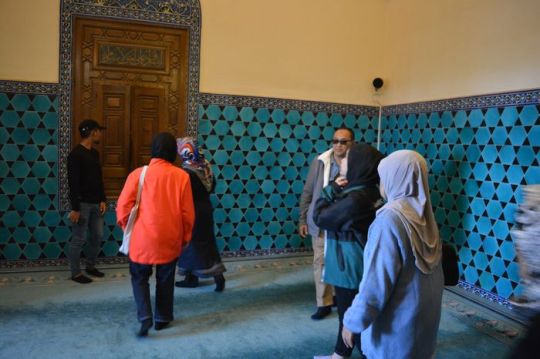
Diverging Narratives The Tale of Aziz Pacha's Letter
A Clash of Testimonies
Even the Turks do not dispute the events that transpired in Perustitza. However, there exists a stark contrast in the accounts offered by the Turks and Bulgarians regarding Aziz Pacha’s alleged promise of protection. While the former claim that Aziz Pacha assured them of safety, the latter vehemently assert that he sent a letter advising them to defend themselves in the event of an attack. This letter, reportedly read aloud to the assembled villagers, instructed them to remain within the confines of the village and bar entry to outsiders.
A Missing Link: The Letter
Despite the Bulgarians’ insistence on the existence of Aziz Pacha’s letter, its veracity remains unverified. The man tasked with delivering the letter, having been arrested upon his return to Philippopolis, was unable to provide tangible evidence. He revealed that a fellow villager possessed the letter at the time of his arrest, but it was confiscated by the Turkish authorities Guided Tours Turkey.
A Failed Intervention
Amidst the villagers’ desperate appeals for aid, Aziz Pacha dispatched two rural policemen, known as zaptiehs, to Perustitza. However, their presence proved fleeting, as they departed after a brief stay, ostensibly to investigate the situation in Ustuna. Subsequently, two Bashi-Bazouks arrived with a message from their leader, Achmet-Aga, offering protection. However, the villagers, wary of such assistance, rebuffed their overtures, opting instead to fend for themselves.
A Tragic Turn of Events
Tensions escalated when the two Bashi-Bazouks insisted on Achmet-Aga’s intervention, leading to a confrontation that culminated in their demise at the hands of the villagers. An Armenian woman, whose husband ran a café in the village, recounted the events leading up to the altercation, attesting to the absence of hostility towards the Turks upon their arrival.
The conflicting testimonies surrounding Aziz Pacha’s letter and the subsequent events underscore the complexity of the situation in Perustitza. While the villagers’ accounts paint a picture of betrayal and abandonment, the absence of concrete evidence leaves room for interpretation. Ultimately, the tragic outcome serves as a poignant reminder of the tumultuous interplay between power, trust, and survival in the midst of chaos.
0 notes
Photo
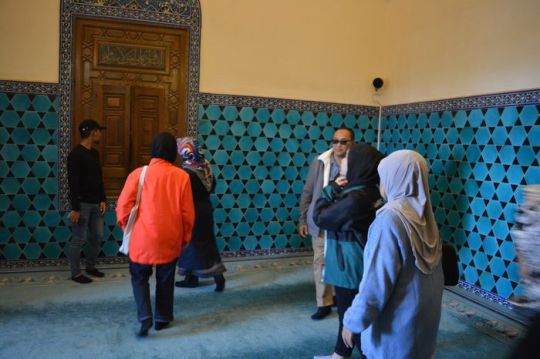
Diverging Narratives The Tale of Aziz Pacha's Letter
A Clash of Testimonies
Even the Turks do not dispute the events that transpired in Perustitza. However, there exists a stark contrast in the accounts offered by the Turks and Bulgarians regarding Aziz Pacha’s alleged promise of protection. While the former claim that Aziz Pacha assured them of safety, the latter vehemently assert that he sent a letter advising them to defend themselves in the event of an attack. This letter, reportedly read aloud to the assembled villagers, instructed them to remain within the confines of the village and bar entry to outsiders.
A Missing Link: The Letter
Despite the Bulgarians’ insistence on the existence of Aziz Pacha’s letter, its veracity remains unverified. The man tasked with delivering the letter, having been arrested upon his return to Philippopolis, was unable to provide tangible evidence. He revealed that a fellow villager possessed the letter at the time of his arrest, but it was confiscated by the Turkish authorities Guided Tours Turkey.
A Failed Intervention
Amidst the villagers’ desperate appeals for aid, Aziz Pacha dispatched two rural policemen, known as zaptiehs, to Perustitza. However, their presence proved fleeting, as they departed after a brief stay, ostensibly to investigate the situation in Ustuna. Subsequently, two Bashi-Bazouks arrived with a message from their leader, Achmet-Aga, offering protection. However, the villagers, wary of such assistance, rebuffed their overtures, opting instead to fend for themselves.
A Tragic Turn of Events
Tensions escalated when the two Bashi-Bazouks insisted on Achmet-Aga’s intervention, leading to a confrontation that culminated in their demise at the hands of the villagers. An Armenian woman, whose husband ran a café in the village, recounted the events leading up to the altercation, attesting to the absence of hostility towards the Turks upon their arrival.
The conflicting testimonies surrounding Aziz Pacha’s letter and the subsequent events underscore the complexity of the situation in Perustitza. While the villagers’ accounts paint a picture of betrayal and abandonment, the absence of concrete evidence leaves room for interpretation. Ultimately, the tragic outcome serves as a poignant reminder of the tumultuous interplay between power, trust, and survival in the midst of chaos.
0 notes
Photo
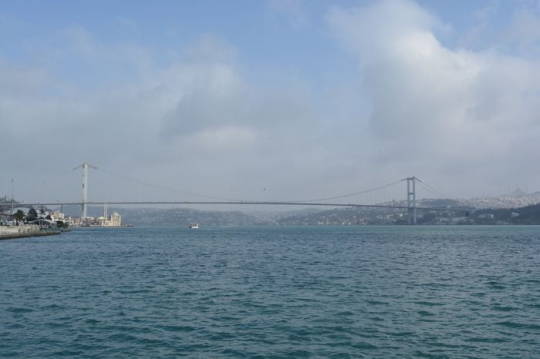
Sultan Mahmut I's Treasury Reorganization
During Sultan Mahmut I’s reign, a thorough organization of the treasury was achieved, primarily focused on re-gathering valuables in the Imperial Treasury for security reasons. This meticulous approach ensured that only authorized personnel could access the treasury, maintaining its sealed status since Yavuz Sultan Selim’s era.
Sale of Unimportant Goods
As part of the treasury reorganization, goods deemed unimportant were offered for sale, while others were sent to the mint for coining. This process streamlined the treasury, ensuring its stability and fortifying the state’s financial foundation Guided Istanbul Tour Whirling Dervishes.
Financial Stability and Victories
A well-stocked treasury under Sultan Mahmut I’s rule contributed to the success of military campaigns, leading to new conquests and victories, particularly in western territories that were regained after periods of scarcity. These triumphs also fostered diplomatic relations with neighboring Muslim countries like Iran.
Diplomatic Exchange with Iran
Historian J. Von Hammer recounts a significant diplomatic exchange between Sultan Mahmut I and the Iranian ruler Nadir Shah. Sultan Mahmut I sent valuable gifts to Nadir Shah, including a throne adorned with pearls and rubies, in return for Nadir Shah’s friendship and protection of Hicaz.
Return of Gifts
Despite the exchange of gifts and diplomatic overtures, the situation changed abruptly with Nadir Shah’s death, leading to disorder in Iran. As a result, Ottoman envoys were recalled, and the valuable gifts sent to Nadir Shah were returned to the palace.
By organizing the treasury and engaging in diplomatic exchanges, Sultan Mahmut I secured financial stability and strengthened the Ottoman Empire’s diplomatic ties during his reign.
0 notes
Photo
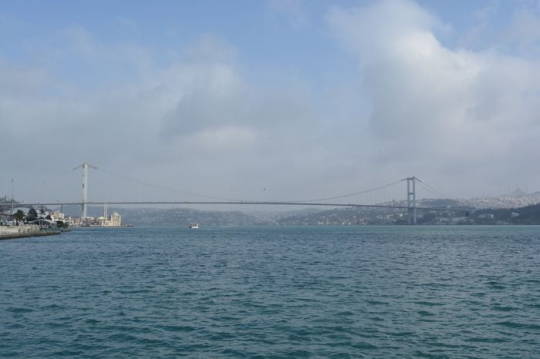
Sultan Mahmut I's Treasury Reorganization
During Sultan Mahmut I’s reign, a thorough organization of the treasury was achieved, primarily focused on re-gathering valuables in the Imperial Treasury for security reasons. This meticulous approach ensured that only authorized personnel could access the treasury, maintaining its sealed status since Yavuz Sultan Selim’s era.
Sale of Unimportant Goods
As part of the treasury reorganization, goods deemed unimportant were offered for sale, while others were sent to the mint for coining. This process streamlined the treasury, ensuring its stability and fortifying the state’s financial foundation Guided Istanbul Tour Whirling Dervishes.
Financial Stability and Victories
A well-stocked treasury under Sultan Mahmut I’s rule contributed to the success of military campaigns, leading to new conquests and victories, particularly in western territories that were regained after periods of scarcity. These triumphs also fostered diplomatic relations with neighboring Muslim countries like Iran.
Diplomatic Exchange with Iran
Historian J. Von Hammer recounts a significant diplomatic exchange between Sultan Mahmut I and the Iranian ruler Nadir Shah. Sultan Mahmut I sent valuable gifts to Nadir Shah, including a throne adorned with pearls and rubies, in return for Nadir Shah’s friendship and protection of Hicaz.
Return of Gifts
Despite the exchange of gifts and diplomatic overtures, the situation changed abruptly with Nadir Shah’s death, leading to disorder in Iran. As a result, Ottoman envoys were recalled, and the valuable gifts sent to Nadir Shah were returned to the palace.
By organizing the treasury and engaging in diplomatic exchanges, Sultan Mahmut I secured financial stability and strengthened the Ottoman Empire’s diplomatic ties during his reign.
0 notes
Photo
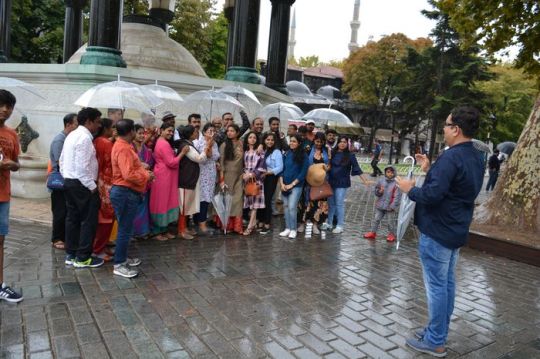
Queen of the Bulgarians
Uncovering the Story of the “Queen of the Bulgarians”
A journey to uncover the truth behind the “Queen of the Bulgarians” reveals unexpected layers of intrigue and tragedy.
Disraeli’s Wit and Turkish Brutality
Disraeli’s astute observation about the Turkish mode of dealing with captives finds grim validation in the fate of these young girls, left abandoned for days on end, a testament to the brutality of their captors Tour Packages Balkan.
A Curious Encounter
In the bustling streets of Philippopolis, tales of a derided “Queen” caught the attention of visitors. Rumored to be imprisoned, she was depicted as a figure of ridicule by the Turks. Intrigued by the mystery surrounding her, a visit was arranged to meet this enigmatic character.
Meeting the Fallen Queen
Led by Dr. Vlados, a Greek physician overseeing the welfare of prisoners, the journey led to a modest dwelling guarded by a stern-faced woman. Upon gaining entry, they encountered a frail figure, presumably the fallen Queen, accompanied by an elder woman, her guardian and protector.
Unraveling the Mystery
The encounter offered a glimpse into the plight of these women, trapped in the web of political upheaval and conflict. As they stood before the visitors, their expressions spoke volumes of their suffering and resilience, shedding light on the human stories buried beneath the layers of political intrigue.
In the heart of Philippopolis, a chance encounter with the “Queen of the Bulgarians” reveals a narrative woven with complexity and sorrow. As the visitors depart, they carry with them the weight of untold stories and the stark reality of human suffering amidst the tumult of history.
0 notes